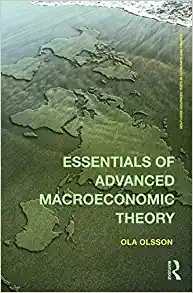Question
Economic theory is unequivocal in its conclusion that free trade is better than autarky (isolationism) for the standard of living in every country. Theory asserts
Economic theory is unequivocal in its conclusion that free trade is better than autarky (isolationism) for the standard of living in every country. Theory asserts that trade allows countries to consume at one another's opportunity cost of production, with the countries having the lowest opportunity cost being the ones to export a product.
Like most assertions in economic theory, this one depends on certain conditions being met. There cannot be coercion in the trade arena; prices and opportunity costs cannot be distorted by monopolistic practices; the relative value of currencies must be able to adjust to changing opportunity costs. In fact, there are always reasons why free market assumptions are violated: it is very difficult to rid markets of the coercion left over from colonialism; approximately 400 transnational companies are responsible for about 50% of the output in the world, so monopolistic market structure is the norm rather than the exception; and every government has incentive to protect its own domestic market for critical goods and the value of its own currency. In this 'second-best' world of multinational corporations and multilateral institutions, what is the best strategy for a country to preserve its own jobs, secure a high standard of living for its own people, and do so without inflicting deliberate and direct harm on other countries, harm that would provoke retaliation?
Question 1: Many countries have complained about China's practice of manipulating its currency to keep its own products cheap in the international market and so grow its own economy by building its export sector. (Remember that a positive value of [X-IM] causes GDP to increase.) But China is also a major buyer of US government bonds, so that the US can finance its imports from China by selling its financial instruments to China. In the long run this is not a good position for the US because the interest on our government bonds will leave the country when the bonds mature. The outflow of cash in the long run will always exceed the inflow of cash in the short run.
Thinking like careful economists, try to think through the impact of a US tariff on Chinese goods on our standard of living (ability to consume), our ability to export to other countries, and our ability to retain ownership of our public debt (government bonds) here in the United States, even if China does not retaliate with tariffs of her own. What impact does a higher price for Chinese goods in the US have on each of these aspects of our economic life?
Question 2: For historical reasons, since WWII the United States has manipulated its own currency to keep it overvalued. This of course hurts our ability to export, but it also strengthens the market for US financial instruments, feeding into our long-running strategy of paying for imports by selling financial instruments. Suppose, though, that the US were to reverse this policy, and adopt a policy similar to China's, where we attempt to lower the cost of our currency in order to reduce our trade deficits. Given that significant amounts of US public debt are held by foreign countries, and a significant number of producers in the US are foreign-owned, so that shareholders in foreign countries have the buying power of their dividends harmed when our exchange rate falls, would this have a positive or negative affect on the economic health of the US in the long run? What would be the immediate repercussions in the US of foreign countries selling off US financial assets? Can you think of strategies that would allow the US to survive the temporary but inevitable loss of value to its own private and public instruments?
Sources:
https://www.youtube.com/watch?v=FkWKn-Mq52A
Biden's Trade Policy with China
CGTN, Dec. 3, 2020, 2:24
https://www.youtube.com/watch?v=eXl2EnVRpUA
US-Canada trade issues won't go away under Biden
Financial Post, Oct 29, 2020 7:20
https://www.youtube.com/watch?v=HYIVt8z6Nls
How the world is restructuring trade [without the US]
DW News, Dec. 29, 2020, 10:48
https://www.youtube.com/watch?v=9wjjQ55S4Nc
The Realities of Trump's Trade War
HBO Original, VICE News, Jan 14, 2019, 27:45
ARTICLES
https://www.investopedia.com/articles/forex/09/chinas-peg-to-the-dollar.asp
Elvis Picardo, "Why China's Currency Tangos with the USD," Investopedia, Aug. 5, 2019
Step by Step Solution
There are 3 Steps involved in it
Step: 1

Get Instant Access to Expert-Tailored Solutions
See step-by-step solutions with expert insights and AI powered tools for academic success
Step: 2

Step: 3

Ace Your Homework with AI
Get the answers you need in no time with our AI-driven, step-by-step assistance
Get Started


